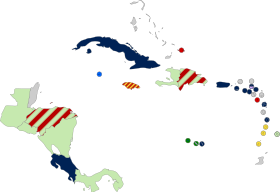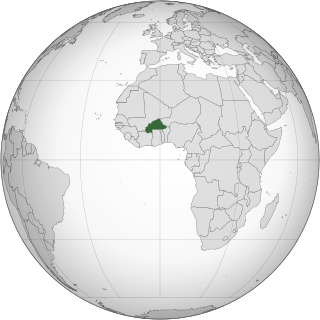
Lesbian, gay, bisexual, transgender (LGBT) persons in Burkina Faso face legal issues not experienced by non-LGBT citizens. Same-sex sexual acts between men and between women are legal in Burkina Faso.
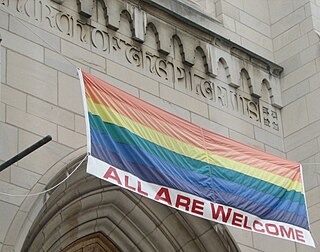
Gay-friendly or LGBT-friendly places, policies, people, or institutions are those that are open and welcoming to gay or LGBT people. They typically aim to create an environment that is supportive, respectful, and non-judgmental towards the LGBT community. The term "gay-friendly" originated in the late 20th century in North America, as a byproduct of a gradual implementation of gay rights, greater acceptance of LGBT people in society, and the recognition of LGBT people as a distinct consumer group for businesses.
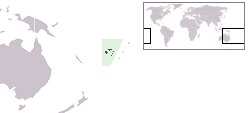
Lesbian, gay, bisexual and transgender (LGBT) rights in Fiji have evolved rapidly over the years, however LGBT people may still face some legal challenges not experienced by non-LGBT residents. In 1997, Fiji became the second country in the world after South Africa to explicitly protect against discrimination based on sexual orientation in its Constitution. In 2009, the Constitution was abolished. The new Constitution, promulgated in September 2013, bans discrimination based on sexual orientation and gender identity or expression. However, same-sex marriage remains banned in Fiji and reports of societal discrimination and bullying are not uncommon.

Canadian lesbian, gay, bisexual, and transgender (LGBT) rights are some of the most extensive in the world. Same-sex sexual activity was made lawful in Canada on June 27, 1969, when the Criminal Law Amendment Act, 1968–69 was brought into force upon royal assent. In a landmark decision in 1995, Egan v Canada, the Supreme Court of Canada held that sexual orientation is constitutionally protected under the equality clause of the Canadian Charter of Rights and Freedoms. In 2005, Canada was the fourth country in the world, and the first in the Americas, to legalize same-sex marriage nationwide. In 2022, Canada was the third country in the world, and the first in North America, to fully ban conversion therapy nationwide for both minors and adults.

Lesbian, gay, bisexual and transgender (LGBT) people in the Bahamas have limited legal protections. While same-sex sexual activity is legal in the Bahamas, there are no laws that address discrimination or harassment on the account of sexual orientation or gender identity, nor does it recognize same sex unions in any form, whether it be marriage or partnerships. Households headed by same-sex couples are also not eligible for any of the same rights given to opposite-sex married couples.

Lesbian, gay, bisexual, and transgender (LGBT) persons in the British Virgin Islands face legal challenges not experienced by non-LGBT residents. Same-sex sexual activity has been legal in the British Virgin Islands since 2001.

Lesbian, gay, bisexual and transgender (LGBT) rights have evolved significantly in the past decades in the British Overseas Territory of Gibraltar. Same-sex sexual activity has been legal since 1993 and the age of consent was equalised to 16 in 2012. The Supreme Court of Gibraltar ruled in April 2013 that same-sex couples have the right to adopt. Civil partnerships have been available to both same-sex and opposite-sex couples since March 2014, and in October 2016, Gibraltar voted to legalise same-sex marriage with the Civil Marriage Amendment Act 2016 passing unanimously in Parliament. The law received royal assent on 1 November and took effect on 15 December 2016.

Lesbian, gay, bisexual, and transgender (LGBT) persons in the Dominican Republic do not enjoy the same rights as non-LGBT residents, and face legal and social challenges that are not experienced by other people. While the Dominican Criminal Code does not expressly prohibit same-sex sexual relations or cross-dressing, it also does not address discrimination or harassment on the account of sexual orientation or gender identity, nor does it recognize same-sex unions in any form, whether it be marriage or partnerships. Households headed by same-sex couples are also not eligible for any of the same rights given to opposite-sex married couples, as same-sex marriage is constitutionally banned in the country.

Lesbian, gay, bisexual, and transgender (LGBT) people in Zambia face significant challenges not experienced by non-LGBT citizens. Same-sex sexual activity is illegal for both males and females in Zambia. Formerly a colony of the British Empire, Zambia inherited the laws and legal system of its colonial occupiers upon independence in 1964. Laws concerning homosexuality have largely remained unchanged since then, and homosexuality is covered by sodomy laws that also proscribe bestiality. Social attitudes toward LGBT people are mostly negative and coloured by perceptions that homosexuality is immoral and a form of insanity. However, in recent years, younger generations are beginning to show positive and open minded attitudes towards their LGBT peers.

Lesbian, gay, bisexual, and transgender (LGBT) persons in Bermuda, a British Overseas Territory, face legal challenges not experienced by non-LGBT persons. Homosexuality is legal in Bermuda, but the territory has long held a reputation for being homophobic and intolerant. Since 2013, the Human Rights Act has prohibited discrimination on the basis of sexual orientation.

Lesbian, gay, bisexual, and transgender (LGBT) persons in Antigua and Barbuda may face legal challenges not experienced by non-LGBT citizens.

Lesbian, gay, bisexual, and transgender (LGBT) persons in the Cayman Islands may face legal challenges not experienced by non-LGBT residents. Both male and female same-sex sexual activity are legal in the Cayman Islands. Despite anti-gay attitudes expressed by certain members of the government, social acceptance by the Caymanian public has been known to be some of the best in the Caribbean. Some have attributed this to the strong British influence in the territory.
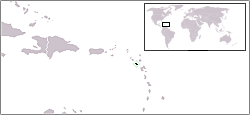
Lesbian, gay, bisexual, and transgender (LGBT) persons in Montserrat face legal challenges not experienced by non-LGBT residents. Same-sex sexual activity has been legal in Montserrat since 2001.

Lesbian, gay, bisexual, and transgender (LGBT) persons in Belize face legal challenges not experienced by non-LGBT citizens, although attitudes have been changing in recent years. Same-sex sexual activity was decriminalized in Belize in 2016, when the Supreme Court declared Belize's anti-sodomy law unconstitutional. Belize's constitution prohibits discrimination on the basis of sex, which Belizean courts have interpreted to include sexual orientation.
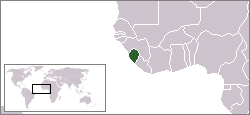
Lesbian, gay, bisexual, and transgender (LGBT) persons in Sierra Leone face legal challenges not experienced by non-LGBT residents. Male same-sex sexual activity is illegal in Sierra Leone and carries a possible penalty of life imprisonment, although this law is seldom enforced.

Lesbian, gay, bisexual and transgender (LGBT) people in Micronesia may face challenges not faced by non-LGBT people. Households headed by same-sex couples are not eligible for the same legal protections available to opposite-sex married couples, as same-sex marriage and civil unions are not recognized. Discrimination on the basis of sexual orientation has been illegal since 2018.

Lesbian, gay, bisexual, and transgender (LGBT) persons in the Marshall Islands may face legal challenges not experienced by non-LGBT residents. Same-sex sexual activity has been legal in the Marshall Islands since 2005, and discrimination on the basis of sexual orientation and gender identity has been outlawed in all areas since 2019. Despite this, households headed by same-sex couples are not eligible for the same legal protections available to opposite-sex married couples, as same-sex marriage and civil unions are not recognized.

Lesbian, gay, bisexual and transgender (LGBT) people in the British Overseas Territory of the Pitcairn Islands enjoy most of the same rights as non-LGBT people. Same-sex sexual activity is legal, discrimination based on sexual orientation is constitutionally outlawed and same-sex marriage has been legal since 14 May 2015.

Lesbian, gay, bisexual, and transgender (LGBT) persons in Anguilla face legal challenges not experienced by non-LGBT residents. Same-sex sexual activity is legal in Anguilla, but same-sex couples cannot marry or obtain civil partnerships. Anguillian law does not forbid discrimination based on sexual orientation or gender identity.

Lesbian, gay, bisexual, and transgender (LGBT) rights in Bonaire are very progressive by Caribbean standards. Bonaire forms part of the Caribbean Netherlands and is a special municipalitiy of the Netherlands. Both male and female same-sex sexual activity are legal in Bonaire, with same-sex marriage and adoption being legal since 2012. In addition, discrimination on the basis of "heterosexual and homosexual orientation" is outlawed.


